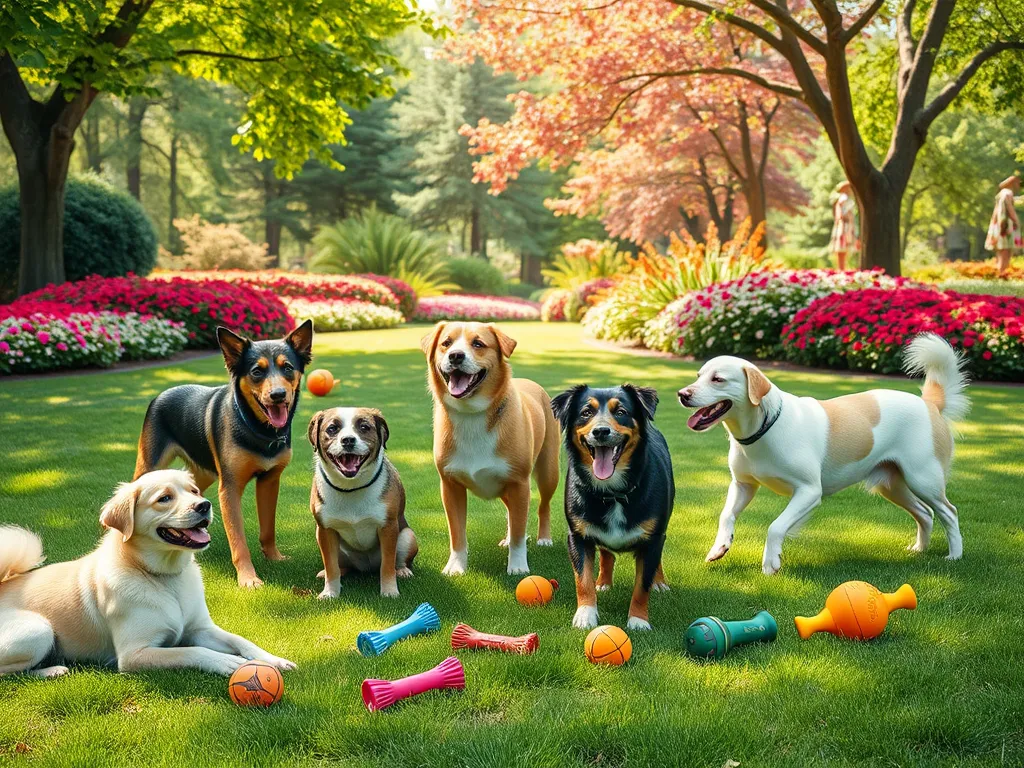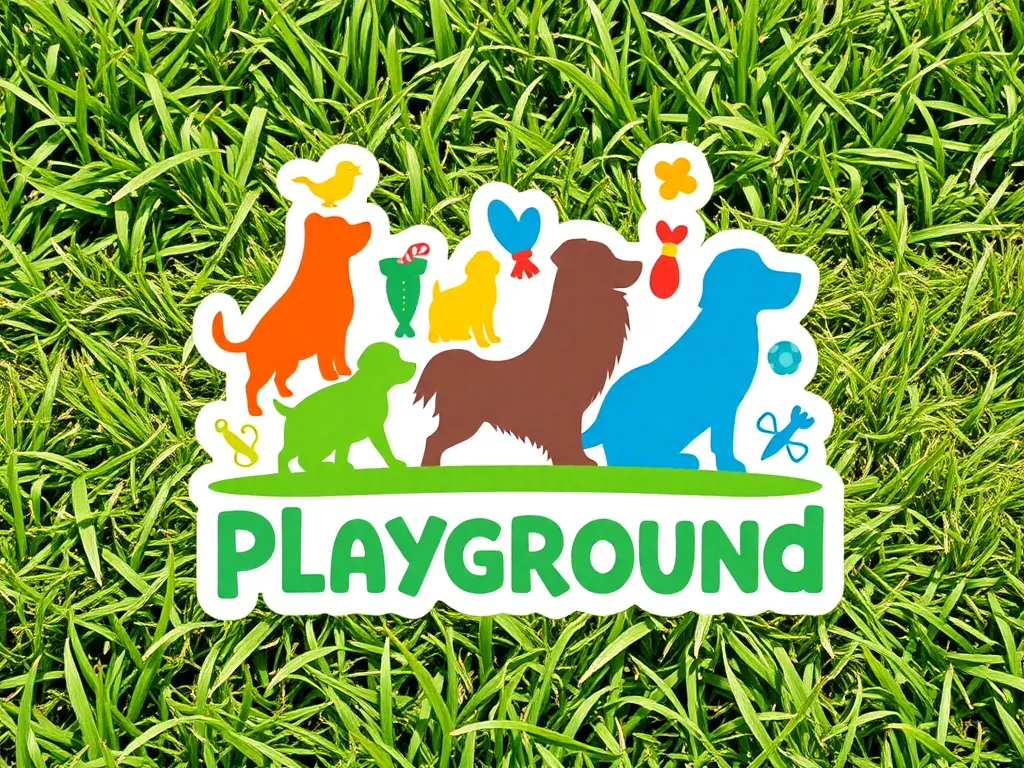Engaging Canine Connections: The Importance of Dog Socialization

Dog Socialization and Indoor Parks: Creating Happy and Healthy Dogs
Dog socialization is a crucial aspect of pet ownership that involves exposing your dog to various environments, people, and other animals. This process is essential for fostering a well-rounded, confident, and friendly canine companion. Indoor parks serve as an excellent venue for dog socialization, providing a controlled yet stimulating environment where dogs can interact, play, and learn. With the right balance of social experiences, both in and out of indoor parks, owners can ensure their dogs have happy lives and adaptability in various situations.
The concept of dog socialization extends beyond just playing with other dogs. It encompasses a wide range of experiences that promote positive behavior and reduce fear or aggression towards unfamiliar stimuli. Indoor parks specifically cater to this need by offering a safe space for dogs to interact with one another under the watchful eyes of their owners and trained staff. As cities continue to expand, and the demand for pet-friendly facilities grows, indoor parks have become an essential resource for dog owners looking to socialize their pets effectively.
Understanding dog socialization and its significance is vital for pet owners. Socialized dogs tend to be better companions, exhibiting good manners and fewer behavioral problems. Utilizing indoor parks as a primary venue for dog socialization can lead to numerous benefits including physical exercise, mental stimulation, and the opportunity for positive dog-to-dog interactions. Owners can utilize these settings to build a foundation of trust and bonding with their furry friends, creating a deeper, happier relationship between them.
Moreover, dog socialization at indoor parks can greatly alleviate anxiety issues not only in dogs but also in owners. Many dogs experience apprehension in new situations or when around unfamiliar dogs. Indoor parks provide a controlled and consistent environment for dogs to practice their social skills, encouraging them to acclimate better to varying situations over time. Supporting their dogs through this gradual process fosters a sense of security for both parties, reinforcing the mutual reliance inherent in the human-canine bond.
As such, dog socialization and indoor parks play an integral role in nurturing happy, healthy, and well-adjusted pets. By providing an environment for consistent exposure to different stimuli, encouraging positive interactions, and allowing for fun activities, these parks become a cornerstone of effective dog socialization. The essence of dog socialization lies in enhancing the wellbeing of dogs and their relationships with human companions, thus ensuring a prosperous life together.
Benefits of Dog Socialization
Enhancing behavioral skills is one of the central benefits of dog socialization. Through regular interaction with other dogs, socialized pets learn behaviors such as bite inhibition, communication through body language, and proper play etiquette. These skills help dogs thrive in a community setting and contribute to a positive experience in shared spaces.
Socialized dogs often exhibit reduced anxiety and aggression, particularly towards new experiences or environments. Regular exposure through socialization, especially in an indoor park setting, allows dogs to become accustomed to different sights, sounds, and smells—lessening fear responses and promoting a relaxed demeanor in various situations.
Effective Dog Socialization is crucial for ensuring a well-adjusted and happy canine companion.
Promoting healthy interactions with other dogs is another significant advantage of dog socialization. Indoor parks serve as unique platforms where dogs of different breeds and temperaments can meet in a controlled manner. These interactions help them establish social skills, leading to improved behavior in other environments, such as dog parks, pet stores, or even during walks.
In addition, dog socialization encourages physical activity and play, vital to a dog's overall health. Indoor parks provide ample space and equipment for dogs to expend their energy through running, jumping, and engaging in games with other dogs. This physical stimulation contributes to better mood regulation, improved agility, and a healthier lifestyle for the dogs.
Finally, dog socialization strengthens the bond between the dog and its owner. Participating in socialization activities together helps create shared experiences, leading to trust and understanding between the two. This bond enhances obedience training and overall communication, making the relationship even more fulfilling and enjoyable for both parties involved.
Indoor Dog Parks: A Safe Environment
A well-designed indoor dog park features several key elements that provide a safe space for dog socialization. These parks are typically enclosed, ensuring dogs cannot run away or escape, and feature paw-friendly surfaces to prevent injuries. Equipment such as agility courses, ramps, and play structures encourage playful interactions while maintaining safety.
Safety measures for dogs in indoor settings are paramount. Facilities usually require vaccination records to ensure all dogs are healthy and protected from contagious diseases. Furthermore, staff members are often trained to recognize problematic behaviors, intervene, and separate dogs if necessary to promote a secure atmosphere for all participants.
Indoor parks offer significant advantages over outdoor spaces, particularly in harsh weather conditions. Rain, snow, or extreme temperatures can limit outdoor exercise opportunities, but indoor parks provide a consistently safe and comfortable environment regardless of the weather. This accessibility allows dog owners to keep their pets active year-round without concern for environmental factors.
Socialization opportunities unique to indoor parks cater to the needs of dogs and owners alike. These venues host special events, playdates, and organized training sessions that encourage interaction among dogs of varying sizes and energy levels. By creating their own community, indoor parks emphasize the importance of socialization while providing tools for effective experiences.
Managing dog interactions in an enclosed area is integral to successful socialization. Indoor parks create a structured environment where staff monitors behaviors to promote positive interactions. This management allows for the gradual integration of new dogs, facilitating a positive experience for everyone involved while minimizing the potential for conflicts or misunderstandings.
Choosing the Right Indoor Park
When it comes to selecting an indoor dog park, several criteria should guide your choice. The park should have a clean, spacious layout designed with safety in mind. Additionally, check for appropriate ventilation and temperature control to maintain a comfortable atmosphere for both dogs and humans.
Community reviews and ratings can offer insights into the quality of particular indoor parks. Testimonials from fellow dog owners can reveal valuable information regarding the park's cleanliness, management, and overall environment, making them an integral part of the selection process.
Park amenities that cater to socialization, such as separate play areas for dogs of varying sizes or temperaments, can enhance the experience. Also, facilities offering training sessions or organized activities can further support dog socialization, ensuring dogs receive adequate stimulation in different ways.
Understanding park rules and regulations is essential before using any indoor dog park. Policies regarding vaccinations, behavior expectations, and supervision can help maintain a safe environment, guiding owners on how to prepare for socialization sessions successfully.
Finally, considering location and accessibility factors will make regular visits more feasible. Choose an indoor park that is convenient to access, whether it's near your home, workplace, or other daily routes. Proximity can encourage consistent socialization outings, ensuring dogs receive regular opportunities to interact with others.
Activities for Dog Socialization
Indoor parks often host organized play sessions and meet-ups designed to promote positive dog interactions. These sessions allow dogs to become familiar with others in a monitored setting while learning essential social skills from experienced handlers who facilitate the play.
Training classes available at indoor parks can be invaluable for socialization. These classes focus not only on basic obedience but also on social skills, equipping owners with the necessary tools to enhance their dogs' behavior around others while providing structured social experiences.
Interactive games designed to encourage bonding between dogs and owners can play an essential role in socialization. Indoor parks frequently offer games like fetch or group agility activities, allowing dogs to build connections with both other dogs and their owners during enjoyable play-based exercises.
Guided socialization techniques for owners are often provided by indoor parks. These resources help owners understand proper introductions, how to observe body language, and discerning signs of stress, allowing for positive interactions that foster growth and comfort for their pets.
Finally, indoor parks can provide stimulation through varied environments. Some parks feature themed areas, sensory experiences, or different types of surfaces and obstacles, giving dogs opportunities to explore new sensations that build confidence and adaptability in various situations.
The Role of Owners in Dog Socialization
Facilitating social interactions is primarily the responsibility of owners. Best practices involve initiating introductions in a controlled manner, allowing dogs to approach each other naturally, and observing their interactions carefully. Proper guidance helps ensure that socialization experiences remain positive and rewarding.
Owners must also recognize signs of stress or discomfort in their dogs. Understanding canine body language signals can help identify when a dog is overwhelmed, enabling owners to intervene and remove their pets from challenging situations before negative behaviors emerge.
Building confidence through structured activities is another vital role for owners in dog socialization. Structured games, training, and gradual exposure to different social settings can help dogs learn to navigate their environment while gaining the assurance needed to thrive in varied situations.
Furthermore, the importance of consistent socialization experiences cannot be overstated. Regular visits to indoor parks, organized events, and training classes help reinforce positive interactions for dogs, promoting their adaptability and overall well-being through meaningful engagements.
Lastly, engaging with other dog owners for support and tips is an excellent way for owners to bolster their socialization practices. Sharing experiences, challenges, and successes with fellow pet owners can provide valuable insights and encourage a supportive community that champions positive dog socialization.
